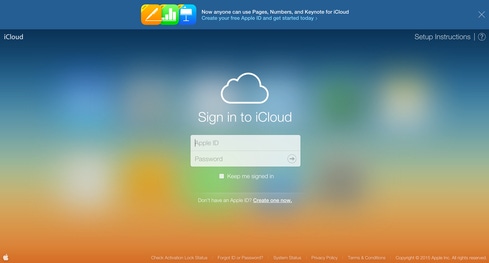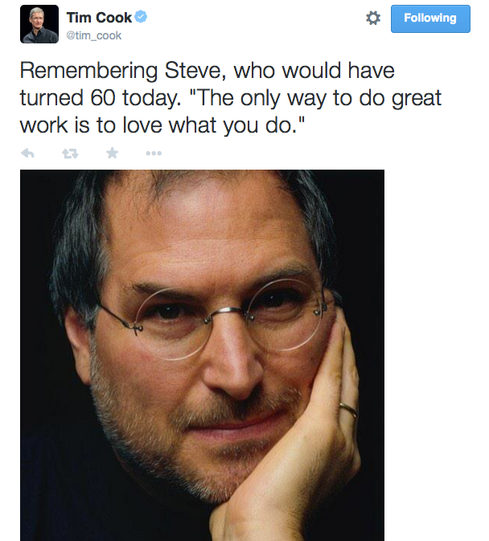Pages, Keynote, and Numbers are now accessible to Windows users, even if they don't also have an Apple device.


Steve Jobs: 5 Things We Miss Most
Steve Jobs: 5 Things We Miss Most (Click image for larger view and slideshow.)
Apple's iCloud service boasts a banner that says, "Now anyone can use Pages, Numbers, and Keynote for iCloud." But "anyone" does not include anyone using Android, despite reports to the contrary.
In mid-February, Apple made a beta version of its iWork for iCloud accessible to users of Windows hardware who didn't also have an Apple device and corresponding Apple ID. Now it has simplified the creation of an Apple ID through iCloud.com, so Windows users don't have to go through iTunes to obtain Apple credentials.
Apple's support website says that iCloud's apps can now be accessed from the Web without Apple hardware. "Don't have an iOS device or Mac?" Apple says in its support website. "You can still sign in to iCloud.com and use Pages, Numbers, and Keynote for iCloud to create beautiful documents, spreadsheets, and presentations, and collaborate with others in real time."
Yet this does not mean Apple has made its Web apps platform-agnostic, as Microsoft has done with Office and Google has done with Google Apps.
Attempts to access iCloud.com using Chrome 40 and Firefox 35 on an Android Nexus 7 tablet running Android 5.0.2 (Lollipop) produced the message, "Android browsers are not supported." This is consistent with Apple's iCloud compatibility requirements, which list only "a PC with Windows 7 or Windows 8" as the only non-Apple hardware options.
An Apple spokesperson confirmed to InformationWeek via email that the company's published iCloud system requirements are accurate, though he mentioned that in some circumstances Android users might be able to access iCloud apps, despite lack of official support. An Android user might be able to do so by spoofing an iCloud-compatible user-agent header in his or her browser.
In any event Apple appears to be inching away from its strategy of linked hardware and software, a strategy that has been in place since company co-founder Steve Jobs stopped allowing hardware partners to make Mac-compatible clones in 1997.
Apple began looking beyond its OS X customers in 2003 when it launched iTunes for Windows. Its goal was to sell more iPods, and it did so in the years that followed. It introduced Boot Camp, to allow Macs to run Windows, in 2006. It then launched Safari for Windows in 2007, but stopped updating the software in 2012. Overall, Apple has tended to develop software that complements and adds value to its hardware while denying that value to competitors.
[ Wondering what Apple has planned next month? Read Apple's March 9 Event: Is It Time For The Apple Watch? ]
As Apple looks for growth, however, it may try to reach an audience beyond OS X and iOS customers. Apple's acquisition of Beats Music and Beats Electronics in 2014 gave the company versions of the Beats Music app for Android and Windows Phone, in addition to iOS. Apple SVP of Internet services, Eddy Cue, has said the company plans to continue offering the Beats Music app on different platforms.
That's a start, though it's far short of the extent to which Google and Microsoft make apps available on competing platforms and accept the Web as a non-proprietary platform. The Apple Watch, which gets its big reveal March 9 and is slated to be released to consumers in April, shows Apple pursuing its traditional strategy of integrated hardware and software. Customers will need an iPhone 5 or later to take advantage of the Apple Watch's features. But, for its Internet services in particular, it's difficult to see why Apple would choose to shut out potential customers who favor other platforms when the competition admits anyone.
Attend Interop Las Vegas, the leading independent technology conference and expo series designed to inspire, inform, and connect the world's IT community. In 2015, look for all new programs, networking opportunities, and classes that will help you set your organization’s IT action plan. It happens April 27 to May 1. Register with Discount Code MPOIWK for $200 off Total Access & Conference Passes.
About the Author(s)
You May Also Like







